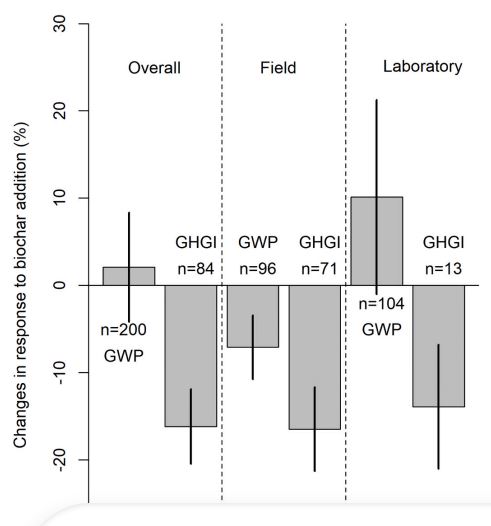February 01, 2023 | Renewable and Sustainable Energy Reviews |
Introduction: Biochar, a proposed solution to combat greenhouse gas (GHG) emissions in agriculture and boost crop yields sustainably, has garnered attention. Yet, its overall impact remains uncertain due to conflicting results from field and lab studies. Analyzing nearly 10,000 data points from over 500 research papers, an US research team led by University of Connecticut sheds light on biochar's effects in field experiments.
Key findings: Field data revealed significant benefits: increased soil organic carbon (SOC) stocks and crop yields, alongside reduced methane (CH4) and nitrous oxide (N2O) emissions, ammonia (NH3) volatilization, and nitrogen leaching. However, its influence on soil CO2 emissions was negligible. Conversely, lab experiments often showed more pronounced effects. Both sets of experiments highlighted factors influencing biochar's efficacy, such as soil properties, biochar application rate, and nitrogen fertilization. Importantly, high biochar rates in labs might exaggerate its benefits on carbon sequestration and underestimate its mitigation potential (Read more).
Figure | Effects of biochar addition on global warming potential (GWP) and greenhouse gas intensity (GHGI)





